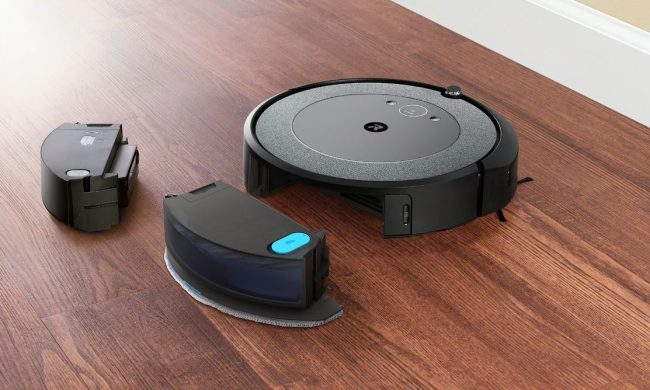Of the many things shown off at CES 2020, you’d be forgiven if you didn’t notice a new partnership between robot vacuum manufacturer iRobot and smart home integration service If This Then That (IFTTT). While app control and even Alexa and Google Assistant support have long been a feature of many of iRobot’s devices, integration with other platforms was not — as they say in tech, a “walled garden.”
Thus with iRobot’s devices no longer the only game in town, and increasingly more sophisticated rivals gaining ground and eating into the company’s dominance in the space, it’s not surprising iRobot look for some differentiation.
iRobot device owners can initially trigger their robot vacuums and mops to act based on other smart home devices within a set schedule with IFTTT — for example, when the owner leaves the house during the day. This could be triggered by the “away” function of a smart thermostat, the company says.
The integrations are welcome, especially when there are so many smart home platforms on the market, each operating in their own closed systems and limiting tighter integration to specific partners. For smart home enthusiasts, IFTTT is often the solution to help these disparate platforms work together and a feature that some explicitly look for.
“We are excited to work with IFTTT to open up exciting new automations that enhance our existing connected product base,” iRobot chief technology officer Chris Jones said in a statement. “We also look forward to exploring with IFTTT opportunities to unlock innovative smart home experiences using the home understanding our robots can provide.”
The latter part of Jones’ comment is the most interesting. While it’s unclear exactly what that might mean, there are a few possibilities. Your iRobot could communicate with your air purifier for example. Although it wouldn’t be sanctioned by iRobot, we could see a possible recipe to trigger another IFFTT-connected robot vacuum in another room to clean when you are using your Roomba in another.
No doubt over the coming months we’ll see additional IFTTT triggers and recipes as the partnership evolves. Either way, it’s a positive sign for the smart home in 2020, which hopefully will see more smart home platforms open up to play nice with others.


